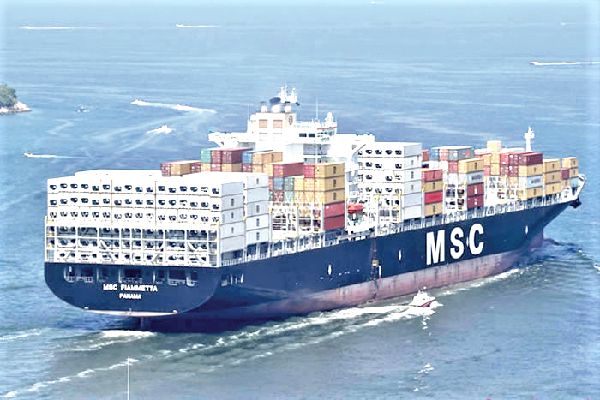Ghana has moved two places up on the ‘Trading Across Borders’ in the latest World Bank Ease of Doing Business Report, an indication that the paperless port clearance system initiated by the government is already paying off.
The Doing Business 2019 report, titled “Training for Reform,” released last week, showed that Ghana was ranked 114 out of 190 countries surveyed in the Overall Ranking of Ease of Doing Business - an improvement from 120 in the previous report.
In the sub-Saharan Africa sub-region, Ghana ranked among the top 15 coming 11th, out of the 47 countries ranked in the region.
This is evidence that the government of Ghana is pursuing active reforms to ensure ease of doing business in the country.
The top 15 countries in the region are Mauritius, Rwanda, Kenya, South Africa, Botswana, Zambia, Seychelles, Lesotho, Namibia, Malawi, Côte d'Ivoire, Uganda, Mozambique, and Togo.
In the “Trading Across Borders” indicator, and in one of the 10 indicators measured, Ghana improved by two places, dropping to 156 from a previous ranking of 158.
This indicator shows that the country recorded the most improvement in the ease of doing business reforms, compared to 2017.
The ‘Trading across borders’ rankings measure the time and cost (excluding tariffs) associated with three sets of procedures: documentary compliance, border compliance and domestic transport; within the overall process of exporting or importing a shipment of goods – One of the Key Performance Indicators (KPI) adopted by the paperless system.
The country made trading across borders easier by removing the Long Room area at the Tema Port after it introduced the Paperless Port Clearance System.
According to the report, "Ghana is among the economies that heavily invested in electronic systems to facilitate trade.
In September 2015, it implemented the first phase of its national single window and ended the contract with Destination Inspection Companies for its Pre-Arrival Assessment programme.
It was also enhanced further in September 2017 when the government implemented the Paperless Port Clearance System to ease the clearing of goods at the ports.
Impact of reforms
The introduction of both initiatives at the country’s sea ports is gradually yielding results to the admiration of importers and stakeholders.
Analysis of the Monthly Import Performance of the Customs Division of the Ghana Revenue Authority (GRA) between 2015 and mid-year 2018, show that the amount of revenue realised from imports has been increasing year-on-year.
The growth in revenue realised from imports over the period can largely be attributed to the strengthening of the single window system at the country’s ports in September 2015, when WestBlue Consulting was brought on-board to compliment the efforts of GCNet, and the recent implementation of the paperless port system at the country’s sea ports, spearheaded by the Vice President, Dr Mahamudu Bawumia.
Total import revenue realised for half year 2015 was GHȼ3,584.11 million. This, however, increased to GHȼ 4,330.26 million by June 2016.
A further increase from GHȼ 4,330.26 million in June 2016 to GHȼ 5,252.43 in June 2017 was recorded.
For the first half of this year, about GHȼ5,798.76 million has been collected for the state from importers. The GRA projects a 30 per cent growth in revenue by close of the year.
Index ranking
The Ease of Doing Business Index ranks economies from one to 189.
For each economy, the ranking is calculated as the simple average of the percentile rankings on each of the 10 topics included in the index in Doing Business 2017.
The topics were: starting a business, dealing with construction permits, getting electricity, registering property, getting credit, protecting investors, paying taxes, trading across borders, enforcing contracts and resolving insolvency.
The World Bank Group’s annual Ease of Doing Business report observed that sub-Saharan Africa economies carried out a record number of reforms in the past year to improve the business climate for local entrepreneurs.
Sub-Saharan Africa set a new milestone for a third consecutive year, implementing 107 reforms in the past year, up from 83 the previous year.
In addition, this year also saw the highest number of economies carrying out reforms, with 40 of the region’s 48 economies implementing at least one reform, compared to the previous high of 37 economies two years ago.
The region is home to four of this year’s top 10 improvers – Togo, Kenya, Côte d'Ivoire and Rwanda. While reforms in the region were wide-ranging, many improvements focused on easing property registration and resolving insolvency. — GB
